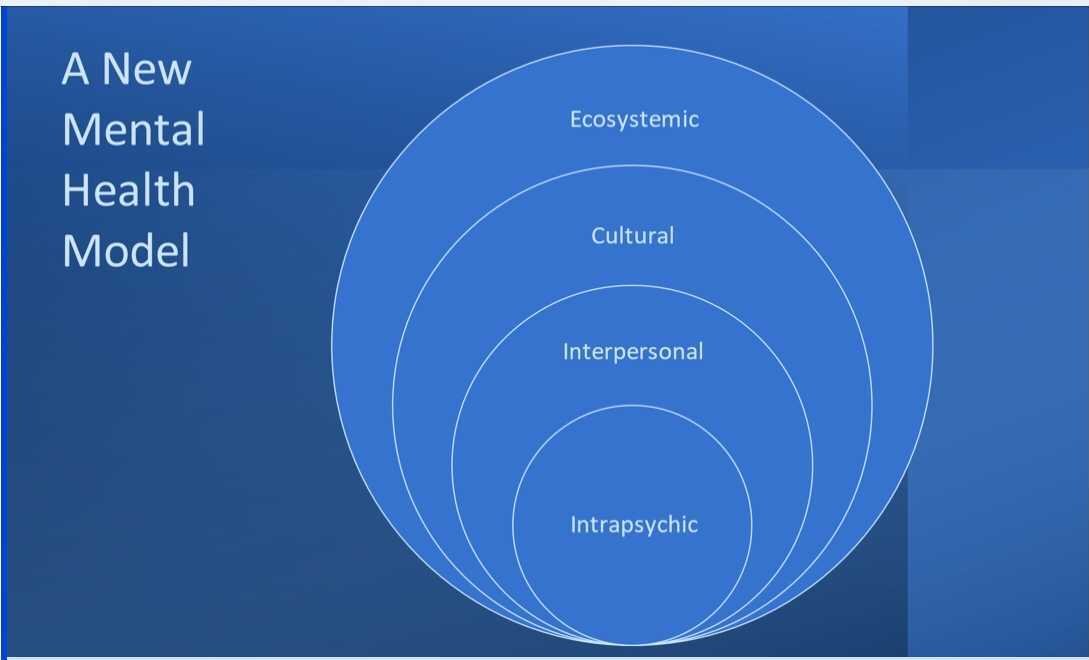Who We Are
We are a 501(c)(3) nonprofit organization run by professionals and staffed primarily by volunteers working in the mental health and psychology fields—including a diverse range of psychotherapists, psychiatrists, psychologists, clinical social workers, researchers, journalists, and students—collaborating from across the United States and Canada.
Our Mission
Climate Psychology Alliance North America (CPA-NA) addresses the urgent psychological dimensions of the climate and ecological crisis and promotes cultural shifts toward human resilience, regeneration, and equity.
As a hub for climate psychology in the United States and Canada, we:
Educate and train mental health professionals in climate-aware practices;
Foster a collaborative community of climate- and environmentally-aware mental health providers;
Inform the public about the varied and layered mental health aspects of the planetary crisis.
In our work, both in theory and practice, we recognize that interconnected forms of collective trauma, exploitation, and othering—including systemic racism, misogyny, and anthropocentrism—lie at the heart of the climate crisis.
Our Founding Philosophy
Our founding philosophy is grounded in a belief in the existence of unconscious processes and in an inner self that feels conflicts. Our founding members believe that our work as therapists involves uncovering these unconscious conflicts, so that people can make better decisions for their lives.
We organize around certain principles, including:
The importance of expanding awareness.
The fact that there is an unconscious that can be brought to the surface and explored.
That it is our job to uncover these unconscious feelings, conflicts, and motivations—to bring us into a more conscious awareness of the more-than-human world.
We have been living in a largely dissociated relationship with the more-than-human world. We’re trying to expand psychology to meet the world– to move psychological work from problems solely between people to problems between people and their environment.
Facing the climate crisis involves processing very difficult emotions that are hard to contain when one does not have a helper. We are here to help clinicians as they start to face these crises, and as they start hearing about climate distress from their clients.
A New Mental Health Model of Care
Mental health models originally described the mind as existing within an individual. This original model eventually expanded to include the influence of other people, including the influence of therapists, on mental functioning. This model then expanded further to reflect ways culture impacted each embedded individual’s perceptions, feelings, and thoughts. CPA-NA is proposing a new mental health model that incorporates influence from an even larger system: the ecosystem. The ecosystem guides circadian rhythms and seasonal affects, and includes the local landscapes and climate systems that we are embedded in.
What We Do
We are in the early stages of developing a variety of programs and projects, and hope to expand our offerings in the months and years to come. Here is a selection of our work.
Programs
Climate Cafe Facilitation Trainings - Ongoing
Upcoming Climate-Aware Therapy Introductory Course - 2025 (please see events pages)
We have created an introductory 6-session course that provides knowledge helpful to being a climate-aware therapist. We are planning for the 6 classes to be divided into three levels of topical organization, conceptualized as concentric circles of embedded, reciprocal influence: Macro-level climate/mental health impacts (larger systems), Mezzo-level climate/mental health impacts (sociocultural, community level), and Micro-level climate/mental health impacts (individual clinical, including intrapsychic).
Upcoming Clinical Consult and Group Support Offerings - Always in development
As members engage in climate-aware therapy in its many forms, there has been growing interest expressed for gathering with other clinicians involved in this work to share ideas, discuss challenges, and help process the sometimes difficult and powerful emotions we ourselves are feeling. We currently offer quarterly clinical consult meetings and as capacity and interest develops, we will expand these offerings.
Media Appearances
CPA-NA members regularly speak with the press about the impact that climate change is having on mental health.
Press inquiries can be directed to: [email protected]
Projects
The Climate Aware Therapy Directory, a project in conjunction with the Climate Psychiatry Alliance.
Our state/provincial/regional coordinator network, currently in early development
Flooded: Climate Stories On and Off The Couch, a quarterly podcast highlighting individual experiences of living in the Anthropocene
The CARES Media Initiative: Connecting Audience, Reporters, Emotion and Sources - A project focused on intersections between mental health, climate, and environmental journalism. The CARES Media Initiative is convened by Rebecca Weston of the Climate Psychology Alliance - North America and Yessenia Funes, climate journalist. Created in collaboration with Covering Climate Now, the Dart Center for Journalism and Trauma, the Metcalf Institute, the Solutions Journalism Network, and the Uproot Project. Take the survey to sign up for updates, including an upcoming survey related to climate, media, and mental health.
The CPA-NA Blog, featuring writing from CPA-NA members on a variety of climate psychology-related subjects

